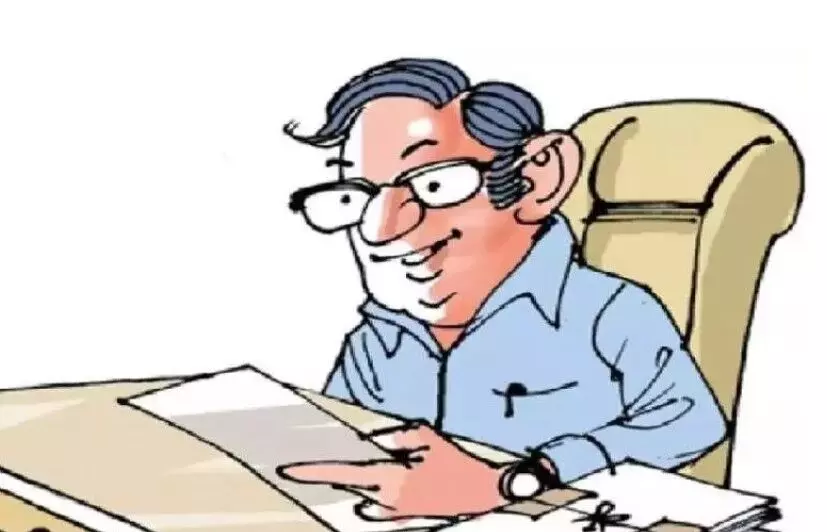
The Mathur wind of change from Kerala
text_fieldsThe country is on a spree of changing names of anything from cities, centres of higher learning, roads, bridges and what more, even of awards. Many of these changes are illogical or communally oriented. And their decisions are being implemented with ostensible reasons of erasing the relics of colonial rule, wiping out memories of foreign rule and reducing the politicisation of the sports field, but one can easily see through signs of their partisan goals and political vendetta of some sort. Amidst such ill-motivated moves comes a ray of hope through a corrective action from Kerala's Palakkad district - a whiff of fresh air around the birth of a simple but shining change.
The Grama Panchayat council of Mathur has decided unanimously to ask people to do away with the practice of addressing office staff and council members with honorifics like 'Sir' and 'Madam'. Mathur is the first village panchayat to make such a change. It has also been decided that in correspondence seeking panchayat services, people should avoid using words like 'request' and 'solicit'. Instead, they are free to use terms like 'demand' or 'command' or 'seek'. And if the requested service is denied for this reason, citizens can lodge a complaint with the office, as per a notice displayed with the signature of the President that may look surreal for most.
The Panchayat authorities explain that at least when the country is celebrating 75 years of freedom from the British colonial masters, their salutations should be revisited and hence the move. The unique decision was also prompted by the urge to instil an awareness that people are sovereign in a democracy. Though this may be dismissed as trivial, it definitely marks a beginning with layers of meaning that together constitute an unmistakable declaration that people's representatives and officials are not cut off from or above the people. Our governance systems are stitched with numerous conventions and procedures that took birth earlier during the monarchy and then the British era and they still lie deep-rooted. The horse cart, resembling a chariot, in which the British Viceroy left the country ending the occupation is still used by the President for his journey to the parliament in the world's biggest democratic country reminiscent of coronation. The convention, which was once suspended due to security considerations, was revived when Pranab Mukherjee became president on the pretext of familiarising the people with ancient protocols. The convention of announcing the arrival of the vice president and speaker at the house with a call 'mananeeya sabhapathi mahoday', and the livery prescribed to be worn by designated staff of parliament, assembly and courts are all remnants of the royal rule of yore, customs that deserve to be discontinued or amended if possible at the first available opportunity. However, people who enter democratic legislatures by winning people's votes, do foster in their heart of hearts royalty and aristocratic mind-sets. Otherwise, several progressive former rulers and architects of the nation, known for initiating many landmark departures from customs, would have put an end to all this right at those times. At least the new age rulers, who are going the whole hog vowing to change the names of roads and even railway stations named after foreign rulers, would have come out for that change. Some eminent figures in the judiciary with progressive outlook are known to have made their disapproval of following such imperial conventions during their tenure in the courts.
But none of them paved the way for any structural transformation. Viewed in this perspective, Mathur village council's corrective step bears huge relevance and significance - an invaluable gift to the people during the Golden jubilee of the nation's independence. The signature of the announcement of this decision by the Panchayat authorities will thus mark a major step in the process of decentralisation of democratic power. One may hope that other local body administrations in the state will also emulate the laudable model and then this Kerala model will lead to big changes at the national level; but more than that, as the Panchayat council declared, the rights and authority of the people in a democracy will be inviolably honoured.


















